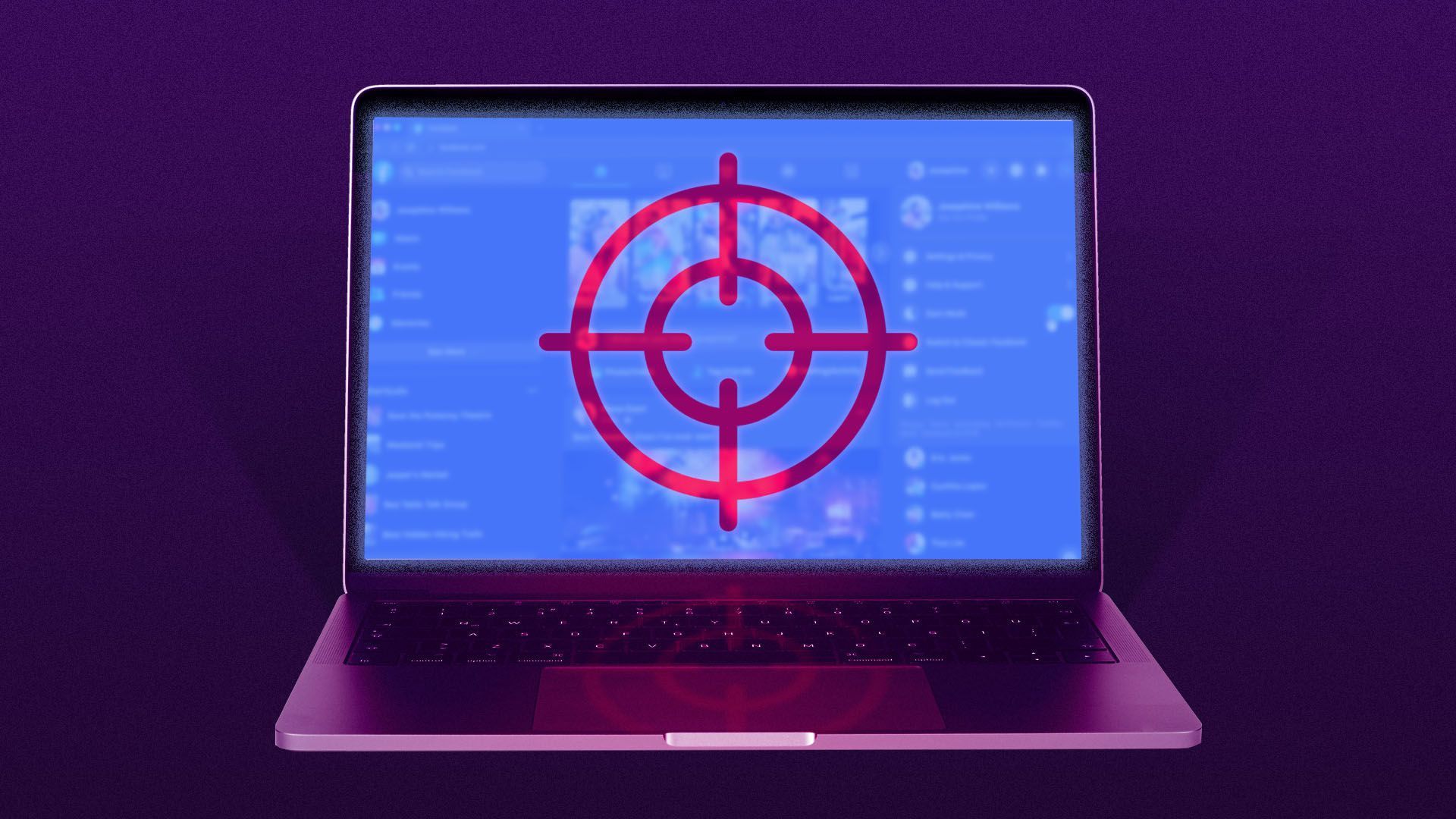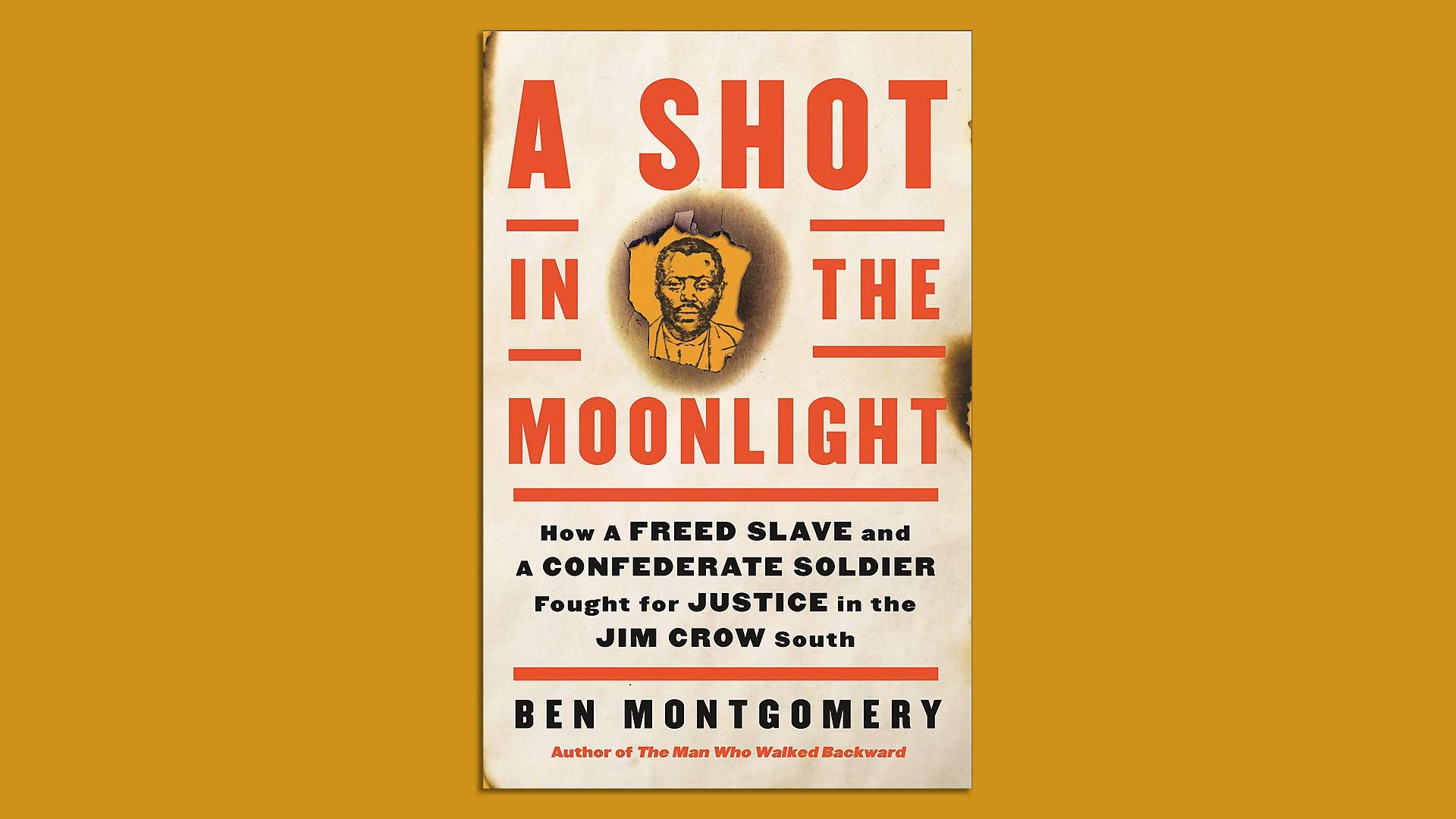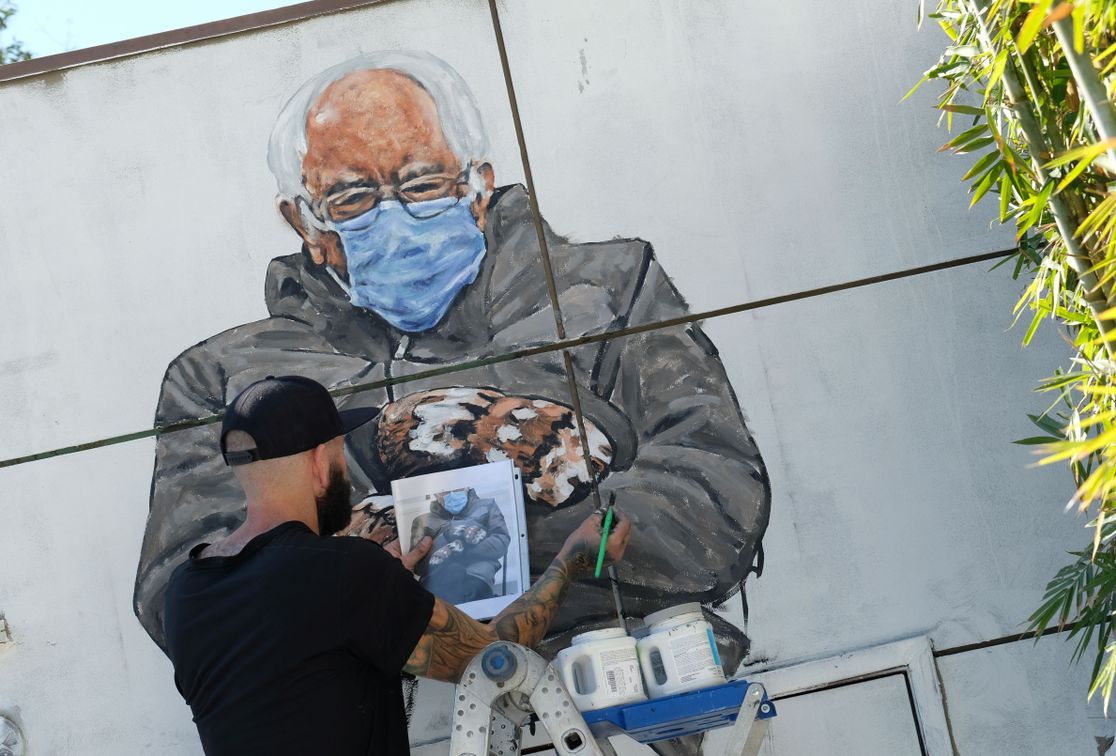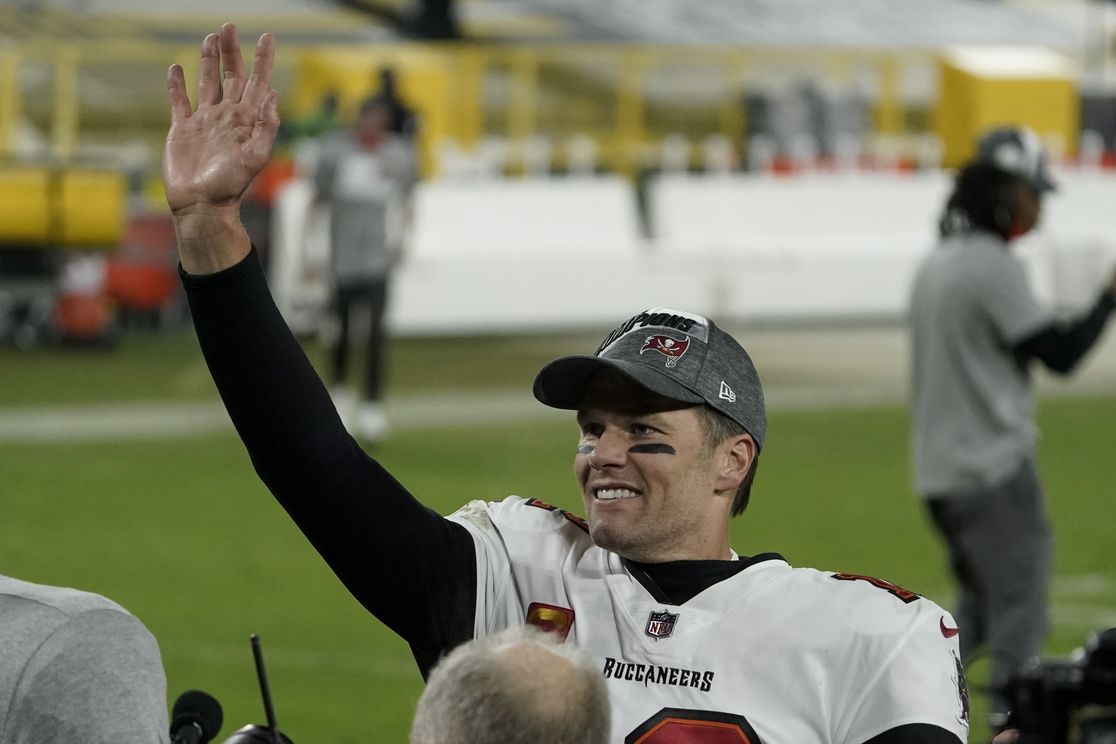| |
| |
| |
| Presented By Bank of America |
| |
| Axios AM |
| By Mike Allen ·Jan 25, 2021 |
| 🏡 Take the Local ... Good Monday morning. Axios Local launches this morning in Tampa Bay (for the Super Bowl, TOMpa Bay) and the Twin Cities — joining Charlotte, with Denver and Des Moines coming soon. Sign up here. 🎧 Episode 2 of "How It Happened" — with Jonathan Swan reporting how a team of conspiracists took control of Trump's legal strategy — drops today. Get it here. - Today's Smart Brevity™ count: 1,131 words ... 4½ minutes.
|
| |
| |
| 1 big thing: Biden's history-curving moment |
 |
|
| Illustration: Sarah Grillo/Axios |
| |
| Like the curve of Earth we can't see from the ground, we're on a curve in history that we won't fully recognize until decades in the future, Amy Harder writes in her "Harder Line" column. - The inauguration of President Biden completes an economic and political consensus that climate change is an urgent threat the world should address aggressively. Whether that produces action remains deeply uncertain.
Amy asked Daniel Yergin, who wrote a Pulitzer-winning history of oil, how historians in 2050 will look back on this time for energy and climate. - "History curving," answered Yergin, whose consulting firm, IHS Markit, has traditionally been most focused on the oil and gas sector but whose fastest growing business today focuses on climate change.
Despite the pandemic ... - Investments in clean energy technologies broached $500 billion last year for the first time ever.
- Venture capital investments in climate technologies broke records.
But for all the money flowing to cleaner energy, we have a 1% reduction in fossil-fuel consumption to show for it, and it's questionable whether it would have dropped at all were it not for a terrible public health crisis. - Oil, natural gas and coal accounted for 81% of the world's energy consumption in 1990. Thirty years later — in 2020 — that figure dropped to 80%, mainly because of the pandemic.
- Keep reading.
🌍 Amy Harder — one of the original Axios experts, going back to the wilds of 2017 — is embarking on a new adventure. But we're fortunate that she'll continue to write "Harder Line" as an outside contributor. Thank you, Amy — and here's to the road ahead! |
    |
| |
| |
| 2. Podcasts boom, but few make money |
 Reproduced from Libsyn. Chart: Axios Visuals Nearly every major media and entertainment company is pouring lots of cash into launching new podcasts. But few of them are making money, Axios Media Trends author Sara Fischer reports. - The top 1% of podcasts get 99% of downloads.
How it works: The podcast ecosystem was built in a decentralized manner via RSS feeds. - As more big companies invest in podcast empires, the question of how to build an advertising market that works ubiquitously across different platforms has yet to be answered.
 Data: PwC Global Entertainment & Media Outlook. Chart: Michelle McGhee/Axios While podcasting is the fastest-growing advertising medium, it's still tiny: - The industry still only brings in less than $1 billion in ad revenue, even though more than 90 million people listen to podcasts monthly, according to Edison Research.
- For the small number of successes, podcasts can be lucrative: The N.Y. Times' podcast division reportedly brought in nearly $30 million in 2019. Vox Media's podcasting business is in eight figures. Spotify reportedly paid Joe Rogan $100 million+ for an exclusive deal.
Share this story. |
    |
| |
| |
| 3. Inside the war on domestic terror |
 |
|
| Illustration: Sarah Grillo/Axios |
| |
| Disillusioned QAnon followers are now being recruited by more violent groups, Axios' Margaret Harding McGill and Ashley Gold report. - "We are already hearing of white supremacist groups seeking to mobilize frustrated conspiracy theorists," said Naureen Chowdhury Fink, executive director of security consulting firm The Soufan Center.
One big worry: Even when tech platforms take action against users who encourage terrorism, those people usually don't face real-world consequences until it's too late. |
    |
| |
| |
| A message from Bank of America |
| A call for greater equality and economic opportunity |
| |
 |
| |
| Bank of America announced a $1 billion, four-year commitment to accelerate work underway to address economic and racial inequalities in our local communities that have been intensified by a global pandemic. Learn more about Bank of America's commitment. |
| |
| |
| 4. Pic du jour |
| Photo: Chris Delmas/AFP via Getty Images Artist Jonas Never paints a mural of Sen. Bernie Sanders in Culver City, Calif., yesterday. Photographer Brendan Smialowski, who took AFP's viral shot of Sanders at the inauguration, told Esquire how it happened: My lens was originally on somebody else, but out of my other eye I saw him fiddling with his hands and I just very quickly went back to him. I originally thought I had missed it ... It trades on who this man is ... I think why it's successful has very little to do with my actual picture, but more to do with Bernie Sanders and his followers and his well-defined image that can carry something like this. |
    |
| |
| |
| 5. New this morning: Sales recover to pre-pandemic levels |
 Data: National Association for Business Economics quarterly survey. Chart: Axios Visuals A key sales gauge has recovered past its pre-pandemic level, Axios' Courtenay Brown writes from a new quarterly survey of business conditions by the National Association for Business Economics. - More respondents said profit margins were rising (30%) than falling (16%).
Why it matters: It's another sign of businesses bouncing back from the depths of the pandemic recession, even with soaring COVID cases and a full economic recovery still far off. |
    |
| |
| |
| 6. Biden's Russia challenge |
 |
|
| Illustration: Eniola Odetunde/Axios |
| |
| The Biden administration has already proposed a five-year extension of the treaty constraining U.S. and Russian nuclear arsenals, announced an investigation into the massive Russia-linked cyberattack, and demanded the release of Alexey Navalny, Axios World editor Dave Lawler writes. - Why it matters: Those three steps in Biden's first week underscore the challenge he faces from Vladimir Putin — an authoritarian intent on weakening the U.S. and its alliances.
Keep reading. |
    |
| |
| |
| 7. 🇨🇳 China passes U.S. in luring business |
 |
|
| Tugboats guide a container ship at the Yangshan Deepwater Port in Shanghai. Photo: Ji Haixin/VCG via Getty Images |
| |
| "China overtook the U.S. as the world's top destination for new foreign direct investment last year," The Wall Street Journal (subscription) reports. - Why it matters: "The 2020 investment numbers underline China's move toward the center of a global economy long dominated by the U.S. — a shift accelerated during the pandemic as China has cemented its position as the world's factory floor and expanded its share of global trade."
|
    |
| |
| |
| 8. Pandemic may worsen child obesity |
 |
|
| Illustration: Aïda Amer/Axios |
| |
| One in five children in the U.S. are obese — an all-time high — with worsening obesity rates across income and racial and ethnic groups, Axios' Marisa Fernandez writes from the National Health and Nutrition Examination Survey. - Without school meals, gym classes or commuting, the sedentary virtual learning environment has given children an extended summer, reports The Counter, a nonprofit food-journalism newsroom.
Keep reading. |
    |
| |
| |
| 9. What we're reading: New book from Tampa Bay Ben |
 |
|
| Cover: Little, Brown Spark |
| |
| Ben Montgomery — lead author of Axios Tampa Bay, debuting today — will be out tomorrow with his fourth book, "A Shot in the Moonlight," which is set in southwest Kentucky in January 1897, and was one of Oprah Magazine's "Most Anticipated Books of 2021": When the guns fell silent and the white men took cover, George Dinning burst out the back of his little wooden house, wearing only his undergarments. He ran through the frigid January air, and when he reached the tall grass of a nearby field, he hurled himself down flat on his back, his lungs heaving, his breath visible and rising beneath a moon almost full and what seemed to be a million stars poking through a smoky blue-black midnight sky. He lay still and quiet and listened to the men's voices coming from the north, beyond the house. Preorder here. |
    |
| |
| |
| 10. 🏈 An epic Super Bowl 55: Age vs. youth |
| Photo: Morry Gash/AP Raymond James Stadium in Tampa will only be about a quarter full, because of COVID limits, when Tom Brady, 43, and his Tampa Bay Buccaneers host Patrick Mahomes, 25, and his Kansas City Chiefs for Super Bowl LV on Feb. 7. - The Bucs are the first team ever to play a Super Bowl in their home stadium.
- The Chiefs opened as a 3.5-point favorite.
Brady is playing in his 10th Super Bowl, going for his seventh ring. - Mahomes will be trying for back-to-back titles, something no quarterback has done since — who else? — Brady, back in his 2003-04 heyday with the Patriots, AP's Eddie Pells writes.
Photo: Reed Hoffmann/AP This'll be the first Super Bowl not played in front of a capacity crowd since the first one — Kansas City vs. Green Bay at the L.A. Coliseum — in 1967. - The crowd will be limited to 22,000 in the 75,000-seat stadium, with vaccinated health-care workers getting 7,500 of those precious tickets.
The visiting team — the Chiefs — won't stay in a hotel during "Hype Week," as the Super Bowl teams usually do. Kansas City doesn't plan to arrive in Tampa until the day before the game, ESPN reports. |
    |
| |
| |
| A message from Bank of America |
| We all have a role to play |
| |
 |
| |
| The need for real progress on racial and economic inequality has been underlined by the disproportionate impact of COVID-19 on communities of color. We all have a role to play in helping move communities forward — an understanding that forms the foundation of our commitment to those we serve. |
| |
| 📬 Thanks for starting your week with us. Please invite your friends to sign up for Axios AM/PM. |
















No comments:
Post a Comment